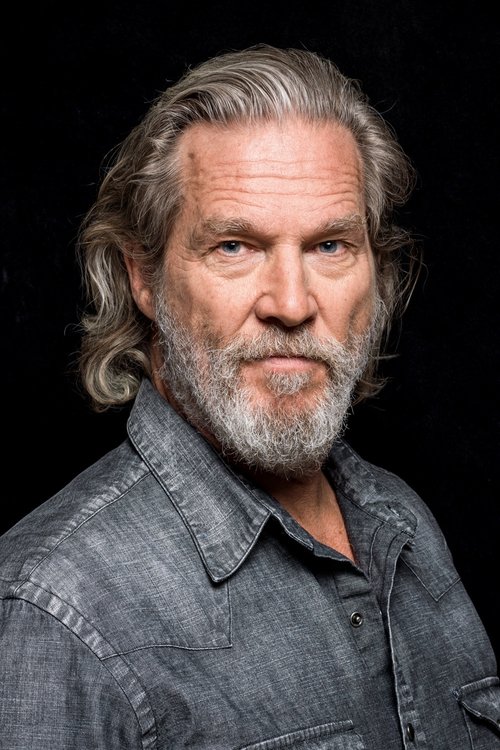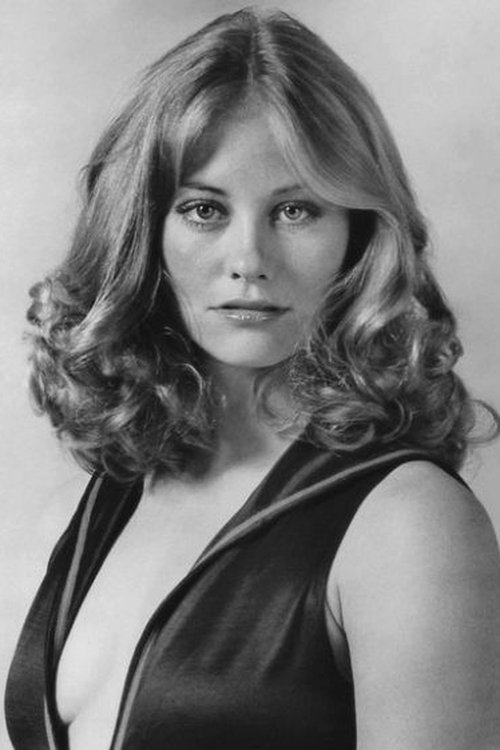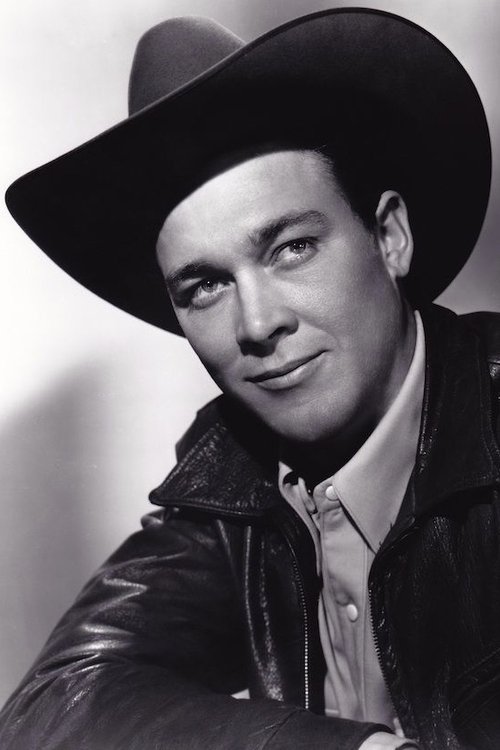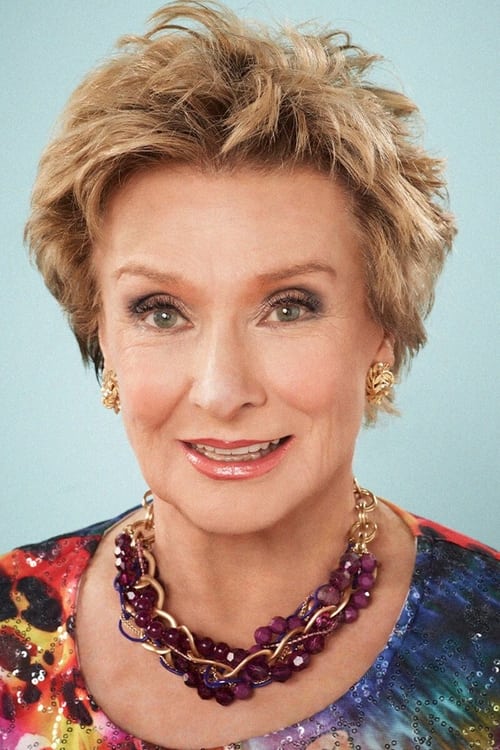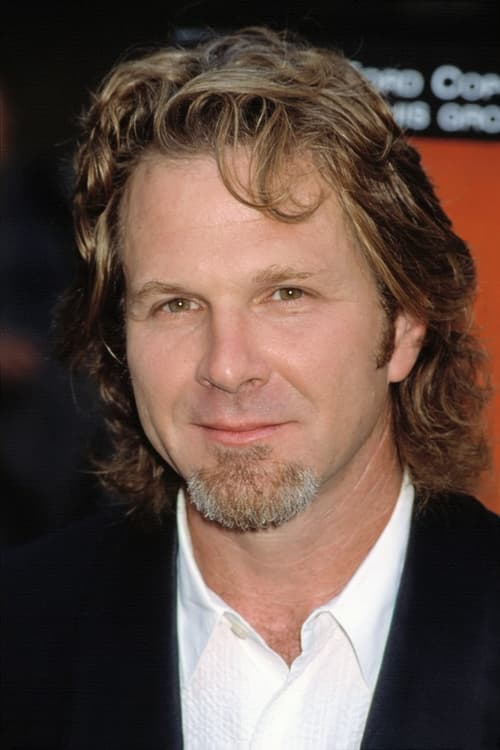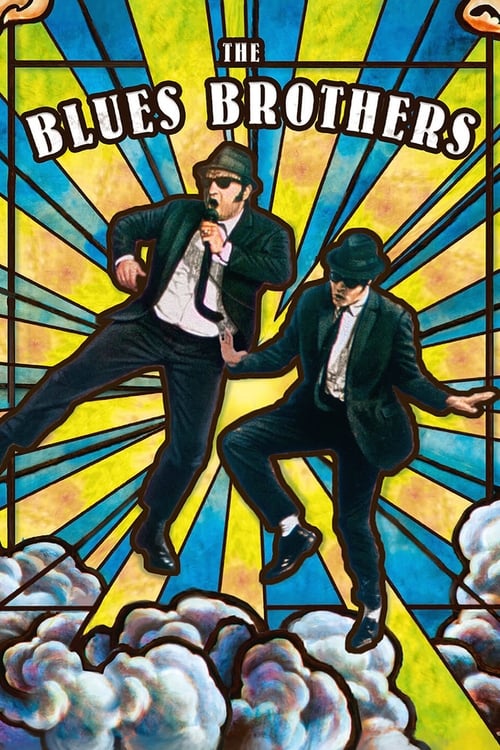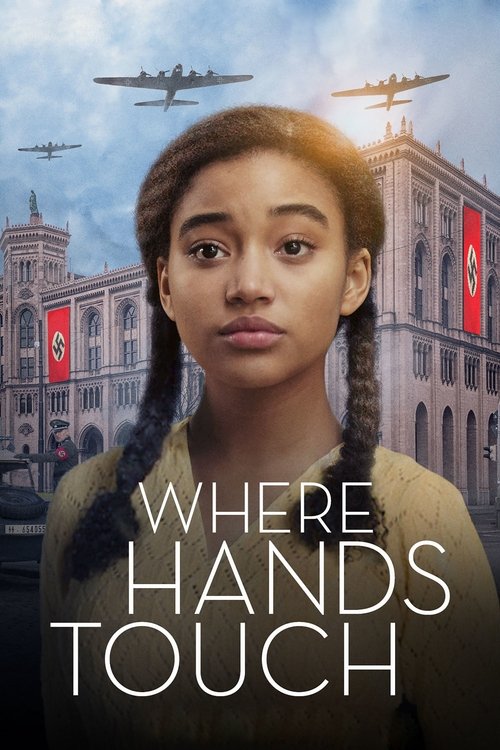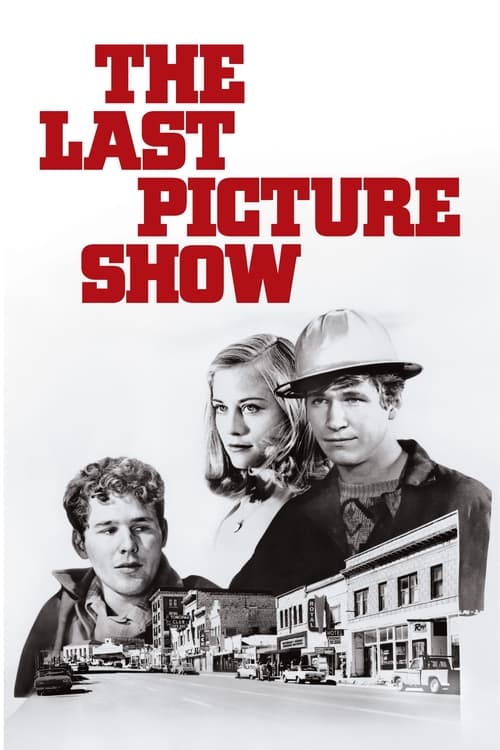
The Last Picture Show
High school seniors and best friends, Sonny and Duane, live in a dying Texas town. The handsome Duane is dating a local beauty, while Sonny is having an affair with the coach's wife. As graduation nears and both boys contemplate their futures, Duane eyes the army and Sonny takes over a local business. Each struggles to figure out if he can escape this dead-end town and build a better life somewhere else.
Dialogues from Movie The Last Picture Show
Quotes from Movie The Last Picture Show
Sound Tracks from The Last Picture Show by T.B.A.
Blueberry Hill
Blueberry Hill by Fats Domino, Played in a diner scene
Honky Tonk Blues
Honky Tonk Blues by Hank Williams, Background music during a dance
Shout!
Shout! by The Isley Brothers, Used in a lively party scene
Walkin' After Midnight
Walkin' After Midnight by Patsy Cline, Played during poignant moments
Smoke! Smoke! Smoke! (That Cigarette)
Smoke! Smoke! Smoke! (That Cigarette) by Smoke! Smoke! Smoke! (That Cigarette), Used in a nostalgic moment
Download App
Memorable Scenes from Movie The Last Picture Show
The Dimming of Lights
The movie theater in the small Texas town is dimly lit, and the community gathers for a screening. This setting highlights the loneliness and fading dreams of the town's residents. It’s here that we feel the weight of nostalgia and unfulfilled aspirations. As the film plays, we see the characters sharing glances and moments that reflect their own unfulfilled lives. The dimming lights serve as a powerful metaphor for the gradual decline of the town and its people.
Context: This moment sets the tone for the film and embodies the theme of lost hope.
Sam the Lion's Last Stand
Sam, the local diner owner, is diagnosed with a terminal illness. His interaction with the town’s youth shows his wisdom, but also his deep sense of loss. He shares stories of the past with them, reflecting on better times while knowing he won't be around to see their futures. The scene is somber and touching as it captures the idea of legacy and the passage of time.
Context: Sam’s character anchors the film, and this scene reveals his impending absence, which will affect everyone in the town.
The Dance of Youth
A high school dance scene unfolds with excitement and nervous energy. The camera captures the awkwardness of teenage interactions, filled with hope yet tinged with uncertainty. When Duane finally asks Jacy to dance, it's a sweet moment that signifies young love and desire, but it’s also marred by the knowledge that their youth is fleeting.
Context: This dance illustrates the complexity of young relationships, reflecting both joy and the inevitable heartbreak of growing up.
Jacy's Struggle with Identity
Jacy exposes her struggles with her self-image and family expectations during a conversation with her mother. It is a pivotal moment, where personal desires clash with societal expectations. Jacy's yearning for love and acceptance resonates deeply as she confronts her insecurities, revealing her vulnerability.
Context: This moment symbolizes Jacy's internal conflict and the pressure young women face in a changing society.
The Farewell to the Picture Show
The cinema announces it will close down, leaving the town's residents devastated. As patrons share memories, their sense of loss is palpable. This serves as a metaphor for the end of an era, not just for the theater but for their youth and dreams as well. The emotional weight of rushing memories fills the theater.
Context: This scene signifies the loss of innocence and the harsh reality of change, resonating with audiences on a universal level.
Duane's Decision
Duane faces a crossroads when he must choose between staying in the town to help and moving away to pursue his dreams. This moment builds tension as his fear of leaving behind his loved ones battles against the excitement of the unknown. The visuals of the empty streets and fading postcards represent his hopes and regrets.
Context: This scene is crucial as it showcases the themes of ambition versus obligation, reflecting a common human struggle.
The Confrontation
A heated argument erupts between Duane and Jacy, laying bare their fears, desires, and misunderstandings. The dialogue is raw and powerful, lending insight into their complex relationship. The confrontation reaches its peak when Duane threatens to walk away, showcasing their emotional instability.
Context: This confrontation symbolizes the challenges of young love and the difficulty of understanding each other at that age.
Sam’s Wisdom
In a quiet moment, Sam reflects on love and loss with a poignant monologue to Duane. He explains the fragility of life and the importance of cherishing moments. The wisdom in his words leaves an imprint on Duane, highlighting Sam’s role as a mentor.
Context: This scene emphasizes the theme of mentorship and the impact that one life can have on another, marking a significant character moment.
A Taste of Bittersweet
At a diner, the characters share drinks and laughter, but the atmosphere is charged with an undercurrent of sadness. This is where friendships are tested and decisions made that will change lives forever. The juxtaposition of joy amidst despair is striking.
Context: This scene illustrates the duality of human experience — happiness intertwined with sorrow.
The Boat Ride
A scene where Jacy and Duane take a boat ride together becomes a metaphor for their relationship. The serene surface of the water contrasts with the turbulent emotions beneath. This calm setting provides a false sense of security before the storm of their conflicts.
Context: The boat ride symbolizes the fleeting nature of young love and the unpredictability of life’s journey.
The Drive-In Disaster
A disastrous night at the drive-in reveals the fragile nature of Jacy's relationships. As Jacy grapples with jealousy and heartache, viewers are immersed in her emotional turmoil. The visuals of the chaotic scene reflect her internal struggle.
Context: This moment serves as a turning point for Jacy, forcing her to confront her feelings and the reality of her choices.
The Goodbye
In a gut-wrenching goodbye scene, Jacy and Duane part ways. The emotional weight is amplified by lingering glances and unspoken words that represent their love's heartbreak. The camera draws close to capture their pain, reinforcing their deep connection even if it’s being severed.
Context: This moment encapsulates the bittersweet nature of parting, reminding audiences of the sorrowful push and pull of love.
Eternal Loneliness
After the farewell, the camera lingers on the desolate town, signifying the emptiness left behind. The silence is deafening, amplifying the feeling of loss. This powerful imagery serves as a reflection of how dreams can shatter, leaving only silence in their wake.
Context: This moment deepens the theme of loneliness and the struggle against the passage of time, underscoring the film’s melancholy tone.
Facetime with Fate
When characters come face-to-face with the consequences of their choices, it becomes a heartrending moment of truth. The conversation turns to regrets and dreams that have gone unfulfilled, creating a poignant clash between hope and reality.
Context: This moment is crucial for character development and encapsulates the film’s themes of regret and lost opportunity.
A New Beginning
The last scene signifies a new chapter for the remaining characters as they look towards an uncertain future. The visuals of them stepping out into the light represent both hope and the fear of the unknown. It’s a climactic finish that raises questions about what lies ahead.
Context: This ending serves as a reminder of resilience and the inevitability of change, tying back into the film’s overarching themes.
Finding Catharsis
A quiet moment of reflection allows characters to express their grief and guilt. This long-awaited catharsis unfolds as they share their burden. The raw emotions displayed are palpable, ensuring that audiences feel the weight of each character’s struggles.
Context: This scene is vital in addressing the theme of healing and the importance of community support during tough times.
Life Lessons
In a heart-to-heart conversation, adult characters impart life lessons to the younger generation. The dialogue is filled with wisdom and perseverance, revealing the importance of understanding and accepting one’s past.
Context: This scene directly connects to the theme of mentorship and the cyclical nature of life's experiences.
Sunsets and Shadows
A visually stunning moment where the sun sets over the landscape symbolizes the end of an era. The colors paint the sky with warmth and sadness, encapsulating the film's melancholic beauty. This scene indicates the closing of a chapter in their lives.
Context: The sunset serves as a metaphor for endings and new beginnings, resonating with the film's core themes of transience.
The Final Frame
The film concludes with a powerful final frame that lingers on a poignant image, leaving viewers with lingering emotions. The scene serves as a reminder of what has come to pass and what is yet to come, encouraging reflection long after the credits roll.
Context: This moment encapsulates the film's essence and reinforces its exploration of the human condition and the passage of time.
Echoes of Laughter
In a moment of nostalgia, characters reminisce about shared laughter and joy, juxtaposed with the gravity of their current situations. The laughter echoes like a haunting memory, emphasizing how time can change our perspectives.
Context: This scene highlights the contrast between past happiness and present struggles, a recurring theme throughout the film.
The Choices We Make
A pivotal scene where characters reveal their hidden regrets and confront the choices they made. The interplay of emotion and vulnerability paints a stark picture of personal accountability, creating a powerful resonance with viewers.
Context: This exploration of choice aligns with the film's theme of consequence and personal growth.
A Heartfelt Reunion
When estranged friends cross paths again, there is a mix of joy and sorrow. The dialogue and body language reveal the weight of their shared history and the chasm created by time apart. It’s a moment that celebrates friendship while recognizing its fragility.
Context: This reunion symbolizes the lasting bonds that are both comforting and painful, reflecting the complexity of human relationships.
The Weight of Silence
A quiet, almost meditative moment where a character sits in solitude contemplating their choices. The visuals are stark, but the emotional weight is heavy. This allows viewers to engage with the character's internal struggle, fostering empathy.
Context: This scene digs into the theme of loneliness and self-reflection, highlighting the personal battles faced by the characters.
Living with Memories
Reflection on the past is captured poignantly as the characters sift through old photographs and memorabilia. This nostalgic journey confronts them with both joyful and painful memories, emphasizing how the past shapes who we are.
Context: This scene embodies the theme of memory and the beauty of reminiscence, enabling the audience to connect deeply with the characters’ journeys.
Download App


